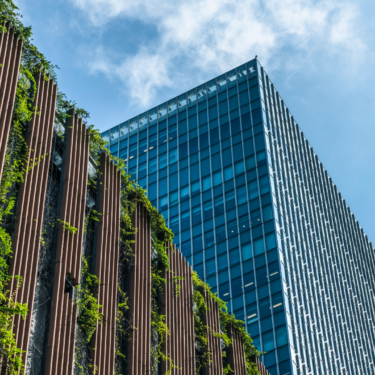In a world where the climate crisis is more pertinent than ever, the way we travel and holiday plays a significant role in shaping a sustainable future. Tourism as an industry is interesting as it’s not just a victim of global warming – it also contributes to the problem. Tourism alone is responsible for 8% of the world’s carbon emissions. As more and more people travel each year, this footprint is only growing. Sustainable travel is about making mindful choices that minimise our environmental impact and contribute positively to the communities we visit. As a keen traveller herself, hear some of Hattie’s practical tips to help you travel with sustainability in mind:
1. Choose Eco-Friendly Destinations
Selecting destinations that prioritise sustainability is a great first step. Look for locations that have strong environmental policies, promote conservation efforts, and support local communities. Places like Costa Rica, New Zealand, and Bhutan are renowned for their commitment to sustainability. Additionally, exploring your own country can reduce the carbon footprint associated with long-haul flights – Aviation accounts for 2.5% of global CO₂ emissions.
2. Opt for Green Transportation
Transportation is one of the largest contributors to carbon emissions in the travel industry. Whenever possible, choose lower carbon options:
- Trains and Buses: These emit much less carbon than flying or driving alone. Opting for the train will emit roughly 80% less CO₂ emissions than flying the equivalent journey.
- Public Transport: Use local public transportation, bikes, or simply walk to explore your destination.
- Electric Vehicles: If renting a car is necessary, opt for an electric or hybrid vehicle.
3. Stay in Eco-Conscious Accommodations
Many hotels and resorts are now embracing sustainable practices. Look for accommodations with green certifications such as LEED (Leadership in Energy and Environmental Design) or those endorsed by organisations like Green Key or EarthCheck. These establishments often implement energy-saving measures, waste-reduction programs, and water conservation practices. If you can’t find certified accommodation within your budget, opt for smaller and locally owned hotel/apartments. Staying somewhere owned by locals / a family not only is generally better for the local economy, but it normally gives you a better taste and feel of the culture where you’re staying.
4. Pack Light and Smart
Packing light can significantly reduce the carbon footprint of your travel. The heavier the plane, the more fuel it consumes. Additionally, consider packing reusable items such as water bottles, utensils, and shopping bags to minimise waste during your trip. Avoid single-use plastics and bring your own toiletries in reusable containers.
5. Support Local Economies
Sustainable travel isn’t just about protecting the environment; it’s also about supporting local communities. Shop at local markets, dine at locally-owned restaurants, and choose tours
operated by local guides. This not only provides a more authentic travel experience but also ensures that your money benefits the local economy.
6. Respect Wildlife and Natural Habitats
Wildlife tourism can have both positive and negative impacts. Always choose ethical wildlife experiences that prioritise animal welfare and conservation. Avoid activities that exploit animals, such as riding elephants or visiting poorly managed zoos. Stick to observing wildlife in their natural habitats and follow guidelines to minimise your impact on the environment.
7. Minimise Waste
Waste management is a critical aspect of sustainable travel. Be conscious of your waste and aim to reduce, reuse, and recycle wherever possible. Carry a reusable water bottle, avoid disposable cutlery, and say no to plastic straws. Many destinations now offer water refill stations, so take advantage of these to stay hydrated without contributing to plastic pollution.
8. Conserve Resources
Simple actions can make a big difference in conserving resources. Turn off lights, air conditioning, and electronics when not in use. Take shorter showers and reuse towels and linens in hotels to reduce water and energy consumption. By being mindful of your resource use, you can significantly lessen your environmental impact.
9. Engage in Sustainable Activities
Choose activities and tours that promote sustainability. Eco-tours, wildlife conservation projects, and cultural exchanges can provide enriching experiences while supporting environmental and community initiatives. Volunteering for local conservation efforts can also be a meaningful way to give back to the places you visit.
10. Educate Yourself and Others
Continuous learning about sustainable practices and their importance can help you make better choices. Share your knowledge and experiences with fellow travellers to raise awareness about the benefits of sustainable travel. By educating others, you contribute to a larger movement towards responsible tourism.
Final Thoughts
Travelling sustainably is about making conscious choices that protect the environment, support local communities, and preserve the beauty of our planet for future generations. By integrating these tips into your travel plans, you can enjoy incredible experiences while making a positive impact. Remember, every small step counts towards creating a more sustainable world.
For more information or to explore how Action Sustainability can support your organisation, please contact our team.






